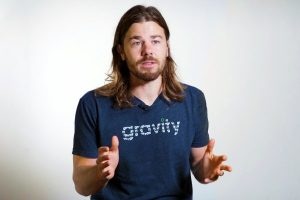Gravity CEO, Dan Price, in 2015 made major headlines and sparked a furious debate throughout the U.S. when he decided to forgo his substantial income to make minimum wage with the rest of his company. Despite backlash, ridicule, support, and major hype, it seems that his company has only flourished since deciding to take on his experiment.
In 2015, Dan Price crunched the numbers and decided that $70,000 was the minimum wage an American could live on comfortably and happily. Since then, he and all of his employees (both junior and senior) have been paid that rate without change. The fintech has experienced a resultant doubling in headcount and the value of payments processed has gone from $3.8 billion a year to $10.2 billion. Despite the CEO admitting that he sometimes misses the comfort his former $1 million plus income brought him, he insists his life and business today are doing far better under the new equal payment initiative. Following his reported success, many other small businesses have followed suit in solidarity.
While profits at Gravity have soared, so has Dan Price’s rebukes towards the country’s other, and namely billionaire, business leaders - as well as the increasingly widening gap in equality. On Price’s Twitter account, in particular, he is known for speaking on issues of inequality in wage gap as well as hiring policies throughout the U.S. and worldwide. He has shared statistics of what the top income earning individuals are making compared to either their workers or the average working-class American, appealing for more equality to close the gap. In Price’s world, more CEOs would follow his lead, but is this the way to go?
To answer this question, one would have to assess if a fixed individual income for all Americans (as per the Price experiment) would result in a healthier economy for America, and a fairer workforce overall. One thing that is immediately clear is that Price’s philosophy and solution is rather simplistic and potentially insufficient to resolve the issues he’s seeking to fix. Without rising income, GDP cannot grow and nor can an economy. Price fails to acknowledge the employment, resources, and benefits big business leaders contribute to the U.S.’s financial health and position as a world leader.
If every business paid a fixed compensation to employees, then the biggest companies run by the likes of Bezos, Musk, Zuckerberg, and the Walmart family would not be able to employ the workforce they require to provide their needed products and services to Americans and the world. For example, since the pandemic, Amazon’s employees rose from 750,000 to 1.13 million worldwide and Walmart employs a total of 2.2 million workers.
While Price’s experiment raises important questions for business owners to acknowledge, it is not necessarily a viable solution for an entire country, with its varying needs and complex economic issues.
























